Whirlwind on the streets of Budapest. Sixty Years of Hungarian Events 1956 of the Year
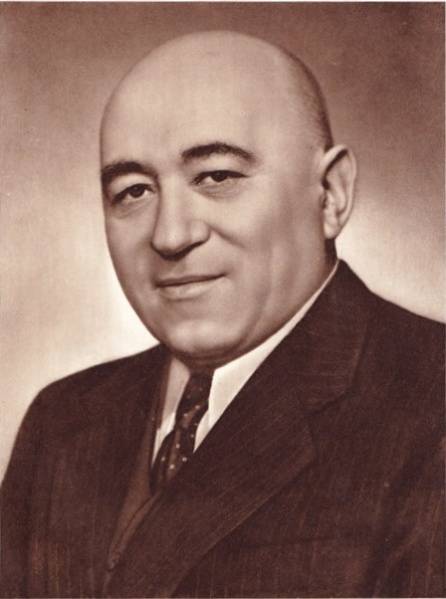
The ground for exacerbating the situation in Hungary matured for a long time. Back in June, 1953, the Soviet leadership criticized the policy of Matthias Rakosi, the secretary general of the Hungarian Workers' Party, who in Eastern Europe was nicknamed "Stalin's best student." Rakosi was dismissed from the post of head of the Hungarian government, but he retained leadership of the party. Imre Nagy was appointed to the post of the head of the government - an old Marxist with pre-war experience who had lived in the USSR for a long time and was known as a supporter of a more democratic model of the political and economic structure of Hungary. Imre Nagy, becoming the head of the government, embarked on the implementation of a whole range of measures that caused many questions from both Rakosi, who continued to lead the party, and the Soviet leadership. In particular, Imre Nagy stopped the construction of large industrial facilities, banned the eviction of large cities on a socially-class basis, and conducted an amnesty for prisoners. The rejection of the policy of industrialization and cooperation in agriculture could not be positively perceived in the USSR.
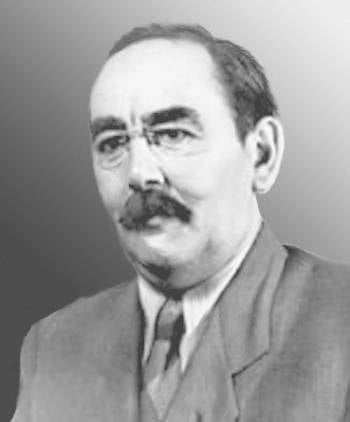 In the end, 18 August 1955, Nagy (pictured) was removed from his post as prime minister and expelled from the party, and the government was headed by thirty-three-year-old Andras Hegedyush - a young politician who does not enjoy serious influence in party circles. In fact, the control over the country's leadership was still in the hands of Stalinist Matthias Rakosi and his colleague Ernö Gerё. This caused quite tangible discontent in Hungarian society. In the end, the Soviet leadership, not only from the desire to minimize protest moods in Hungary, but also because of their own questions to Rákosi, succeeded in removing him in July 1956 from the post of first secretary of the Central Committee of the Hungarian Workers Party. However, instead of Rakosi, the party was headed by his closest associate, Ernö Gerё, one of the oldest Hungarian Communists, a member of the Hungarian Soviet Republic 1919 of the year and the Spanish Civil War. Hopefully, such a “bison” as Geryo will pursue a policy of democratization of the country, for obvious reasons, was not necessary. In the party environment and in society as a whole, fermentation began, initiated by opponents of the “Stalinist” line of Rakosi-Gerё. The example of neighboring Poland, where the famous Poznan uprising took place in 1956, had a certain influence on the mood in Hungary.
In the end, 18 August 1955, Nagy (pictured) was removed from his post as prime minister and expelled from the party, and the government was headed by thirty-three-year-old Andras Hegedyush - a young politician who does not enjoy serious influence in party circles. In fact, the control over the country's leadership was still in the hands of Stalinist Matthias Rakosi and his colleague Ernö Gerё. This caused quite tangible discontent in Hungarian society. In the end, the Soviet leadership, not only from the desire to minimize protest moods in Hungary, but also because of their own questions to Rákosi, succeeded in removing him in July 1956 from the post of first secretary of the Central Committee of the Hungarian Workers Party. However, instead of Rakosi, the party was headed by his closest associate, Ernö Gerё, one of the oldest Hungarian Communists, a member of the Hungarian Soviet Republic 1919 of the year and the Spanish Civil War. Hopefully, such a “bison” as Geryo will pursue a policy of democratization of the country, for obvious reasons, was not necessary. In the party environment and in society as a whole, fermentation began, initiated by opponents of the “Stalinist” line of Rakosi-Gerё. The example of neighboring Poland, where the famous Poznan uprising took place in 1956, had a certain influence on the mood in Hungary. Mass street performances in Budapest began on October 23 1956. Until now, these events are most often viewed in the “black and white” spectrum - some accuse the initiators of the uprising in pro-Western sentiments and the desire to return the capitalist order in Hungary, others see the popular uprising of October-November 1956 of the year exclusively anti-Soviet and anti-communist. In any case, the victims of the uprising were, first of all, the Communists, the workers of the party and state apparatus. Although the Hungarian rebels positioned themselves as supporters of the “workers' councils”, pro-Western and anti-communist slogans were no exception.
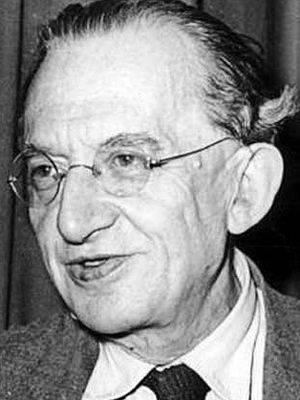 On the night of October 23 1956, the Hungarian Communist Party decided to appoint Imre Nagy as head of the government of the republic. This decision was made with the consent of the Soviet leadership, as Anastas Mikoyan and Mikhail Suslov who arrived in Budapest simply had no choice but to accept the appointment of Imre Nagy. So expelled from the party and removed from all posts Imre Nagy again returned to the Hungarian "big politics".
On the night of October 23 1956, the Hungarian Communist Party decided to appoint Imre Nagy as head of the government of the republic. This decision was made with the consent of the Soviet leadership, as Anastas Mikoyan and Mikhail Suslov who arrived in Budapest simply had no choice but to accept the appointment of Imre Nagy. So expelled from the party and removed from all posts Imre Nagy again returned to the Hungarian "big politics". One of the most interesting personnel decisions made by Imre Nagy was the appointment of the famous philosopher Gyorgy Lukács to the post of the Minister of Culture of Hungary (in the photo). About this person should be said. György Bernat Lukács is considered one of the classics of the Western Marxist tradition. Coming from a wealthy Jewish family, Lukács, whose real name was Levinger, in his youth at the beginning of the twentieth century, became acquainted with Marxist and anarcho-syndicalist ideas. At the same time, Lukács remained a man from the academic environment, although during the short-term existence of the Hungarian Soviet Republic in 1919, he held the post of Acting President. Commissioner of Education. In 1929 — 1945, Lukács lived in Moscow and, surprisingly, despite his views, which were doubtful from the point of view of official Soviet Marxism, was not repressed, but had the opportunity to continue scientific activities. In 1945, Lukács returned to Hungary, where he was also not harassed, and in 1949 he was even included in the Academy of Sciences. At the same time, although Lukács was criticized by the adherents of official Soviet Marxism, but even Mikoyan and Suslov agreed that in difficult conditions of the 1956 fall, Lukács, despite his seventy-year age, was the most acceptable candidate for the post of Minister of Culture than others reviewed by scientists and public figures.
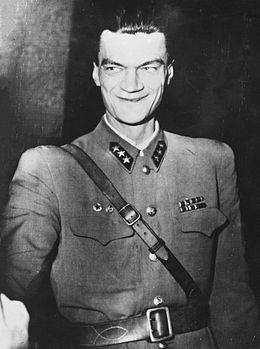
At the most important post in any government, Defense Minister Imre Nagy appointed Colonel Pal Maleter (pictured), who previously commanded the engineering forces of the Hungarian People’s Army. Pal Maleter before the events of 1956, was not known to the general public - he just turned out to be the only senior officer of the Hungarian People’s Army who openly sided with the uprising.
October 27 Ernö Gerö was removed from his post as first secretary of the Central Committee of the Hungarian Workers' Party. He was replaced by Janos Kadar, another pro-Soviet politician. However, this could not turn the course of events back. Imre Nagy, who headed the country's government by this time, found himself in a difficult situation. He could either suppress the uprising, turning to the Soviet Union for help, or try to lead it and continue to build “Hungarian socialism” without looking back at Moscow. Nagy chose the second option. It is difficult to say how he was guided by whether personal ambitions, the desire to prevent bloodshed, or ideological views that diverged from the line of the Soviet leadership. In any case, Imre Nagy entered history as the man who led the Budapest uprising.
At the end of October 20, on the streets of the Hungarian capital, Soviet troops entered the city on the night of October 24 — immediately after the start of the uprising. Initially, the Soviet command expected that units of the Hungarian People’s Army would help them in suppressing the demonstrations. However, on October 28, the VNA command received from the head of the government Imre Nagy an order not to intervene in the situation and not to take action against the rebels. Later, Imre Nagy spoke on the radio, announcing that the government considered the actions of the rebels as revolutionary and informing that the Hungarian People’s Army was being dissolved, and instead of it, new armed forces were being formed. At the same time, Imre Nagy ordered all members of the Communist Party, who defended the party and government institutions, to lay down weapon. In fact, this order was a real betrayal of the Hungarian communists, since many of them paid with their lives precisely because they laid down their arms - the rebels did not intend to spare them. On October 30, the Soviet leadership decided to withdraw all Soviet troops from Budapest, since in the current situation Moscow could not yet work out a clear position on how to deal with Imre Nagy and the “Hungarian revolution”.
However, it was just these days that the armed conflict began between Egypt on the one hand, England, France and Israel - on the other hand, which culminated in the Suez crisis. In the current situation, Nikita Khrushchev decided not to withdraw troops from Hungary, in order not to give the Americans and their allies a reason to doubt the military-political power of the Soviet Union. The Soviet leadership decided to create a new revolutionary workers 'and peasants' government of Hungary, headed by the pro-Soviet Janos Kadar, and the government of Imre Nagy to be overthrown. To this end, the development of a plan for Operation Whirlwind, led by USSR Defense Minister Marshal Georgy Zhukov, was launched. The plan for an armed operation to suppress the Hungarian uprising aroused the understanding and support of the leadership of other countries of the socialist camp, including even China and Yugoslavia, who at first were very friendly to the Hungarian events. The socialist countries feared that the Hungarian revolution could be a dangerous precedent for overthrowing the socialist system "from below", and the countries of the West would take advantage of it.
To participate in Operation Whirlwind, 15 tank, mechanized, rifle and aviation divisions, 2 airborne divisions (7th and 31st), a railway brigade. The total number of troops involved in the operation reached more than 60 thousand people. On November 3, Lieutenant General Petr Laschenko, commander of the Special Corps, ordered the commanders of the 2nd and 33rd Guards Mechanized Divisions and the 128th Guards Rifle Division to begin the assault on Budapest on November 4 at 05:50. Similar orders were given to subordinate units by the commanders of the 8th Mechanized Army, Lieutenant General Hamazasp Babajanyan and the commander of the 38th Combined Arms Army, Lieutenant General Haji-Umar Mamsurov. The Special Corps of General Laschenko was tasked with seizing the most important objects on the territory of Budapest, including the bridges over the Danube, the Buda Fortress, parliament buildings, the Central Committee of the VPT, the Ministry of Defense, the police department, the Nyugati and Keleti stations, the Kossuth radio station. As part of each of the three divisions that were part of the Special Corps, special detachments were formed as part of infantry battalions, reinforced by companies of paratroopers and 10-12 tanks. In each detachment there were also employees of state security agencies. Meanwhile, at 05:15 on November 4, the Szolnok radio broadcasted an official appeal by Janos Kadar to establish a Hungarian revolutionary workers 'and peasants' government to protect the republic from "fascism and reaction." Thus, Soviet troops entered Hungary at the official invitation of the workers 'and peasants' government of Janos Kadar.
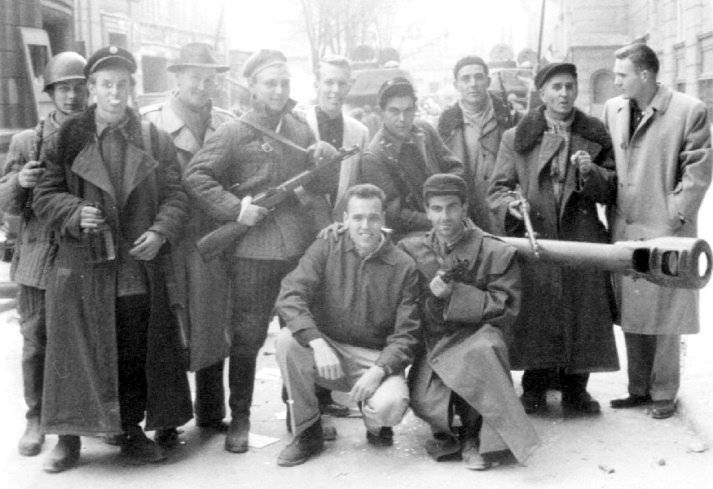
Imre Nagy, who heads the government supporting the rebels, hid in the territory of the Yugoslav embassy. Soviet troops occupied Budapest for one day on November 4, demonstrating a high level of combat training. Meanwhile, in other parts of Hungary, units of the 8 th mechanized army and the 38 th combined arms army were able to neutralize almost the entire Hungarian army by disarming the 5 of the Hungarian divisions and 5 of individual regiments with a total of more than 25 thousand troops.
For the next three days, 5,6 and 7 in November, street fighting continued between the Soviet troops and certain rebel groups in the streets of the Hungarian capital. On November 7 Janos Kadar himself arrived in Budapest, who announced the transfer of power to a revolutionary workers 'and peasants' government. The resistance of the last rebel groups was suppressed on November 8. A day later, on November 10, representatives of the workers' councils of Budapest appealed to the Soviet command with a request for a cease-fire.
However, despite the fact that control over the Hungarian capital was actually transferred to the Soviet troops, and the power of the Hungarian Workers 'Party under the leadership of Janos Kadar was restored in the country, the workers' councils created during the uprising continued to exist. They continued their activities for a month, until in early December 1956 were dispersed by the Hungarian security forces. As a result of the repressive measures following the suppression of the uprising, several thousand people were arrested. It was possible to lure out of cover in the Yugoslav embassy and Imre Nagy. A trial was held over Imre Nagy, who sentenced the former head of government to death. 16 June 1958, almost two years after the uprising, the execution of its leaders took place. Imre Nagy, Colonel Pal Maleter, who was Minister of Defense in the government of Nagy and journalist Miklos Gimesh, who edited the Hungarian Freedom newspaper, were hanged.
Key leaders of the Hungarian communist movement before the 1956 year - Miklos Rakosi, Ernö Ger,, Laszlo Piros, Andre Hegedyus moved to the Soviet Union. Rakosi remained forever in the USSR, where he died in the 1971 year, after 14 years after the uprising. In 1960, ErnUM Gerö returned to Hungary, where he lived without being engaged in politics. He died in 1980 year in old age. Laszlo Pirosh, who served as Minister of the Interior until 1956, returned to Hungary in 1958, worked as a director for a salami factory and was not involved in politics. In 1958, he returned to Hungary and Andr Hegedyush - but he was no longer involved in politics, but worked as a teacher, he lived more than forty years - until 1999. Army General Mihai Farkas, who was considered the third person of the party hierarchy after Rakosi and Gerё, was arrested under Kadar and spent several years in prison until 1961, then worked in publishing and died in 1965, at the age of 61.
The suppression of 1956 speeches contributed to strengthening the position of the USSR in Eastern Europe, demonstrating Moscow’s resolute attitude. Hungary itself remained socialist for another thirty-four years, although even then an alarming signal was sent, which became a kind of rehearsal for subsequent velvet revolutions against pro-Soviet political regimes.
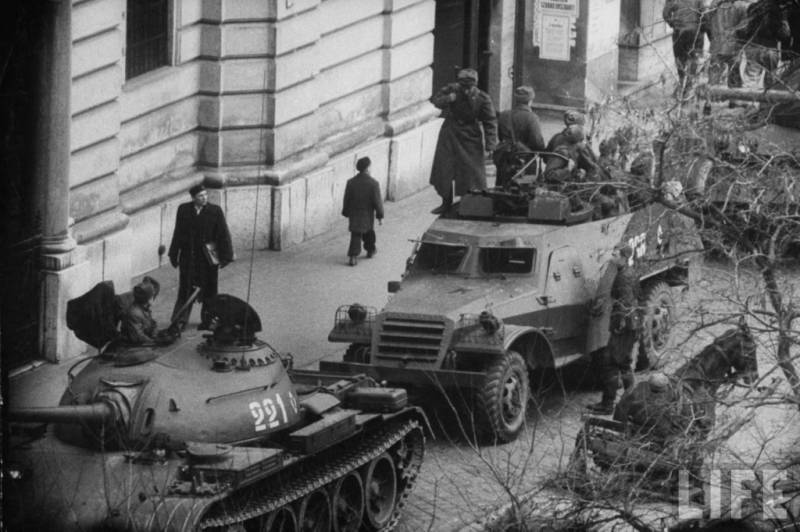
Information